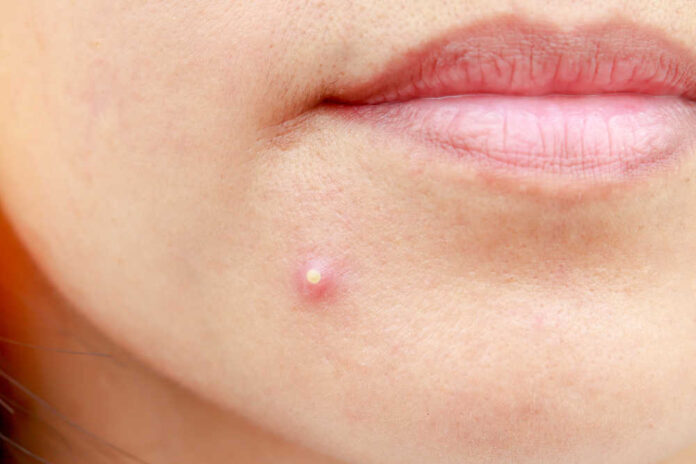
Zits are the worst! They pop up overnight out of nowhere and take over your face. They’re also incredibly difficult to eliminate; some can stay on your face for weeks. But that doesn’t have to be the case. There’s been a recent development in the beauty industry with hydrocolloid patches and other topical creams that can reduce the swelling from pimples overnight.
How to Get Rid of Pimples at Home
The American Academy of Dermatology (AAD) suggests that when you want to treat a new pimple at home, you should start by washing your skin and drying it with a clean towel, wrap some ice in a cloth and press it on the pimple for about five to ten minutes, take a break, repeat and apply a benzoyl peroxide spot treatment.
If you have a whitehead, you can get a bowl of hot water, soak a washcloth on it, put it on your pimple for ten to fifteen minutes, and repeat it throughout the day (preferably four to five times).
What Causes Pimples
During adolescence and early adulthood, androgen hormones become more prevalent and contribute to the development of acne. Acne can develop from sensitivity to these hormones, as well as to microorganisms on the skin’s surface and fatty acids produced by the oil glands.
Are There Medical Treatments for Pimples
Acne that won’t go away on its own should be treated medically, possibly by a dermatologist. Many remedies exist for this problem, such as benzoyl peroxide, salicylic acid, topical antibiotics, and retinoids. These remedies can either be taken orally or topically.
Treatments applied directly to the skin can alleviate redness, clear clogged pores, and slow sebum production. In addition, they can prevent bacteria from multiplying. However, they could produce results faster.
The AAD reports that it may take up to four months for severe cases before patients begin to feel better. New acne products should be used consistently for 6-8 weeks before being swapped out for the best results.
Acne that doesn’t respond to topical treatments may require oral antibiotics from a doctor. Depending on the source of the acne, treatments such as oral retinoids and hormonal or retinoid drugs like the birth control pill may be helpful.
How to Prevent Pimples
Normal hormonal fluctuations make acne prevention extremely challenging, if not impossible. But there are things that can help. You should always start your day with a warm shower and a gentle cleanser for your face, then apply a moisturizer frequently to your skin. Although you need not give up makeup altogether, it is recommended that you switch to “non-comedogenic” products and always wash your face before bed. Lastly, don’t touch your eyes or mouth.






















